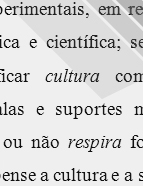

................................
Given the widespread realisation, post-1870-90, and the intellectual denunciation of degeneration (M. Nordau), the Neo-Darwinist version of "decadence," in the hands of various nationalisms the haecceitic dogma of "Portuguese culture" would become the bastion of battles that nationalised almost every branch of knowledge: in Águia [Eagle] and Renascença Portuguesa [Portuguese Renaissance] materials from lyrical and oneiric stratigraphies are carted for a mythical reconstruction, later encapsulated in ontological manifestos by Teixeira de Pascoaes (Saudosismo; A Arte de ser português [Yearning: The Art of being Portuguese]); Lusitânia is the legitimate banner of the group of researchers investigating native lineages in ethnology and philology (Leite de Vasconcelos, J. M. Rodrigues, Carolina Michaëllis), soon abusively translated into Mugense anthropology (Mendes Correia); in architecture, the contemporary dispute over the "Portuguese house," triggered by Raul Lino; in the plastic arts, the "Portuguese primitives" were discovered, and the endless contention over the panels of St. Vincent; finally, in the increasing international isolation that the dictatorship (and Portuguese society) experienced between the end of World War II and the colonial wars, the finding of a "Portuguese philosophy" would be the swan song of Europe's southwestern eccentricities, at a time when they no longer prospered in the cultural market and exposed the excentric, peripheral labyrinth of these illusions. In the literary field, particularly that of poetry, the claimed nationalisation would be illogical, as it is the creative area that refracts the profound linguistic singularity in a semiotic arrangement. Thus, the doctrinal programme was summarised in the reification of "Portuguese civilisation," which suppressed distant investigation. The politique d’abord of the authors of Nação Portuguesa [Portuguese Nation] with António Sardinha, essayist of the traditionalist "re-Catholicising" and "re-Portugueseising" confrontation with republican, secular, and liberal culture, rekindled the old flames of the 18th-century quarrel between castiços [nativists] and estrangeirados [overly open to foreign influences at the expense of the native culture]; L. Cabral de Moncada, in the 17th-century controversy with A. Sérgio and the seareiros better fits this denunciation of ideological and cultural "imports" in the conditioning of the narrow agenda of operation, although he later expands on qualified readings of the history and philosophy of Law, such as P. Merêa, cross-border and useful areas for cultural history, and in the analytical field, in Verney's " "iluminismo português" ["Portuguese Enlightenment"] (1941), mysticism (1950), and Krausism.
